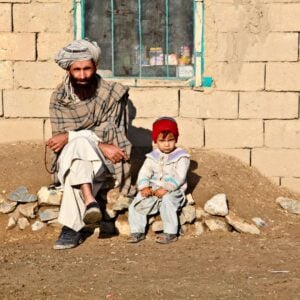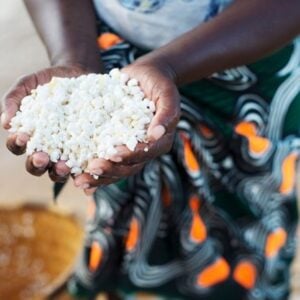In northern Mozambique, a fresh wave of coordinated attacks by armed groups in September has forced hundreds of families to flee their homes, with many arriving in the districts of Mueda, Nangade, and Montepuez. However, these areas are already struggling after eight years of conflict, making it difficult to provide adequate support for the relentless pace of new arrivals. In Mueda alone, nearly 1,800 families have arrived in recent weeks, with hundreds more recorded in neighbouring districts. At displacement sites like Mpembe and Eduardo Mondlane, families continue to arrive daily, often with little more than what they can carry.
Many of those fleeing have been displaced before. Women who arrived in Mpembe recounted fleeing Mocímboa da Praia after renewed attacks, unable to afford the high cost of transport to safer locations. Families are forced to settle in abandoned shelters left behind by others, many of which are in poor condition. In Lyanda, Thomas, who escaped with his wife and children, described narrowly surviving an attack that killed his neighbour. His family now lives in a cramped transit shelter, supported by the Norwegian Refugee Council (NRC) through voucher assistance that allows them to buy essentials like food, cooking items, and household supplies.
NRC, in partnership with Ayuda en Acción and EU Humanitarian Aid, is providing vouchers worth around $100 to help families survive their first two weeks of displacement. The system restores choice and dignity, allowing families to decide what items they need most, while protection teams identify vulnerable individuals in need of psychological or additional support. Humanitarian teams are currently targeting emergency aid for more than 3,200 families, but the needs continue to grow.
Despite these efforts, conditions at displacement sites remain dire. There are no schools in Lyanda, leaving children without access to education, and healthcare services are extremely limited. Host communities, themselves long displaced, are sharing what little they have with the new arrivals. Families like that of Lazarro, who walked for days carrying schoolbooks for his children in the hope they could continue their education, face deep uncertainty.
The latest displacement adds to years of violence, instability, and recurring natural disasters in Cabo Delgado, including multiple cyclones earlier this year. With shrinking funding and ongoing insecurity, aid agencies are struggling to meet urgent needs. The NRC has highlighted Mozambique as one of the world’s most neglected displacement crises, stressing the urgent need for stronger international support to deliver life-saving assistance in increasingly challenging conditions.







